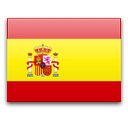
Expired Registration Recovery Policy
Please notice:
This domain name registration has expired and renewal or deletion are pending. If you are the registrant and want to renew the domain name, please contact your registration service provider.

Bitte beachten Sie:
Diese Domainregistrierung ist abgelaufen und die Verlängerung oder Löschung der Domain stehen an. Wenn Sie der Registrant sind und die Domainregistrierung verlängern möchten, kontaktieren Sie bitte Ihren Service-Provider.

Por favor, tenga en cuenta:
Este registro del dominio ha expirado y la renovación o la supresión del dominio está pendiente. Si usted es el registrante de dominio y quiere renovar el nombre de dominio, por favor póngase en contacto con su proveedor de servicios.
